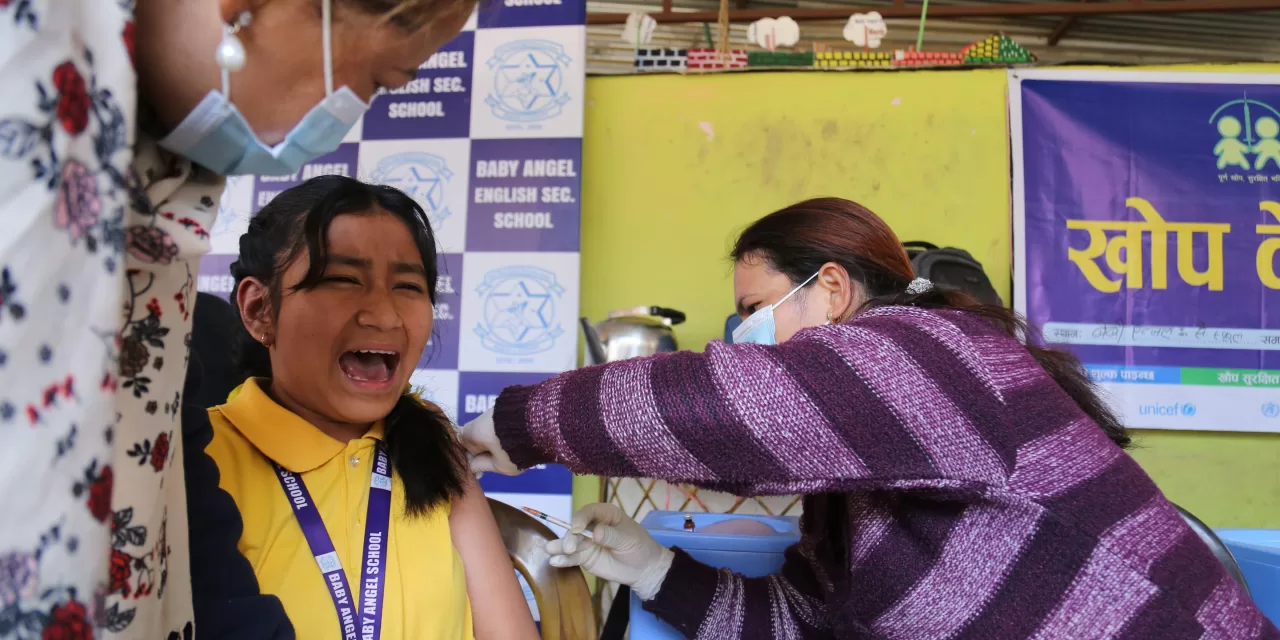Nepal has embarked on an ambitious vaccination campaign aimed at immunizing approximately 5.7 million children aged between nine months to 15 years, with the goal of eradicating measles and rubella from the country. The drive, slated to continue until March 20, will cover 24 districts, including 21 heavily affected regions along the Indian border and three districts within the Kathmandu Valley.
In addition to these areas, children aged nine months to five years across the remaining 53 districts will also receive vaccinations. The local government has designated vaccination centers, primarily educational institutions, to facilitate the smooth implementation of the immunization campaign.
Bimlesh Mahaseth, principal of a school designated as a vaccination center in Nagarjun Municipality, emphasized the significance of the campaign, stating, “The vaccination campaign against measles-rubella is a booster dose, as the same dose is given to children at the age of nine months and fifteen months at all the government hospitals and inoculation drives. This time the government has planned to eradicate measles and rubella.”
The Ministry of Health and Population has established a staggering total of 48,798 vaccination centers nationwide to support the campaign. Furthermore, 49,937 health workers and 59,906 volunteers have been mobilized to ensure the efficient execution of the initiative.
Measles, a highly contagious disease caused by the measles virus, spreads through airborne respiratory droplets and direct contact with infected secretions. The virus can remain active and contagious in the air or on infected surfaces for up to two hours. Patients are infectious from four days before the onset of the rash to four days after its appearance, with the virus initially infecting the respiratory tract before spreading to other organs.
Despite the absence of specific antiviral treatment, most individuals recover from measles within 2-3 weeks. However, Nepal experienced an outbreak of measles in 2023, with a total of 690 cases reported, including one associated death, across seven districts in Western Nepal and three districts in Eastern Nepal. The majority of cases were reported in children under 15 years old.
The current vaccination campaign represents a crucial step in combating the spread of measles and rubella in Nepal. Students in the capital expressed gratitude for the initiative, with Avesh Rana stating, “I should be saying that I am quite happy because it’s free and because of the concern of the government I can probably feel very well as well as do my work pretty well now,” after receiving the vaccine.
Nepal’s commitment to widespread vaccination underscores its dedication to safeguarding public health and eliminating preventable diseases from its population.












